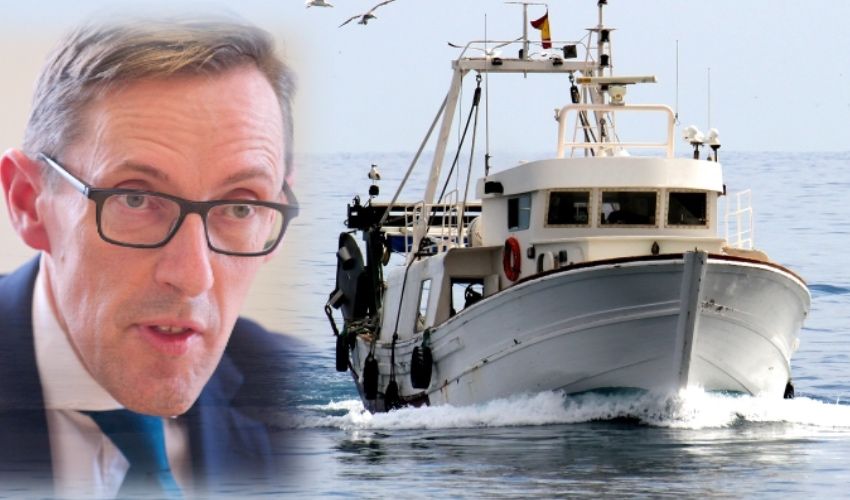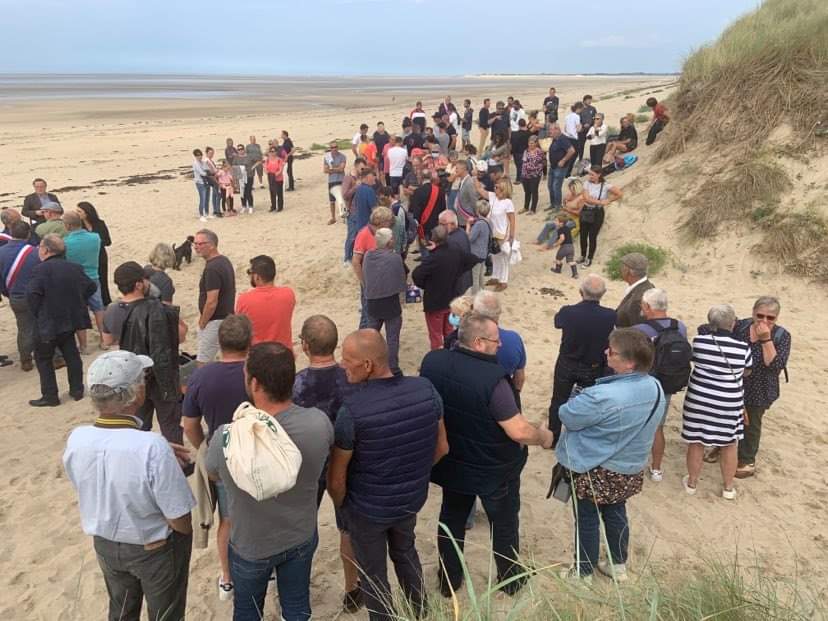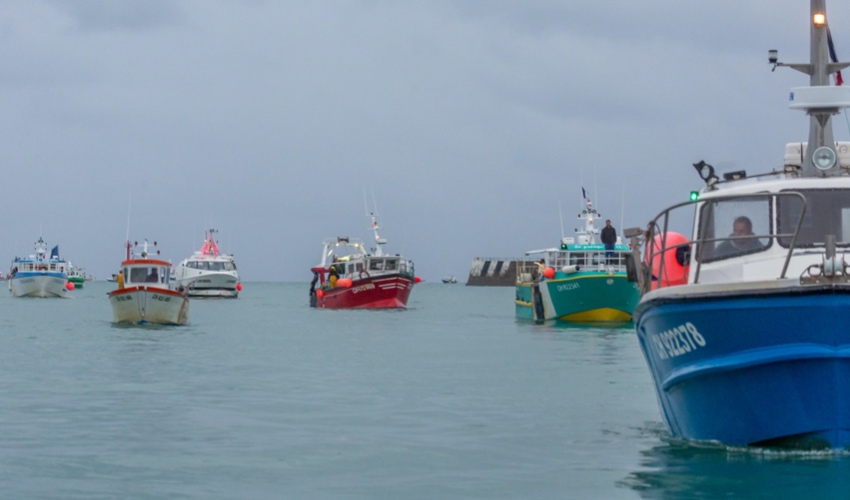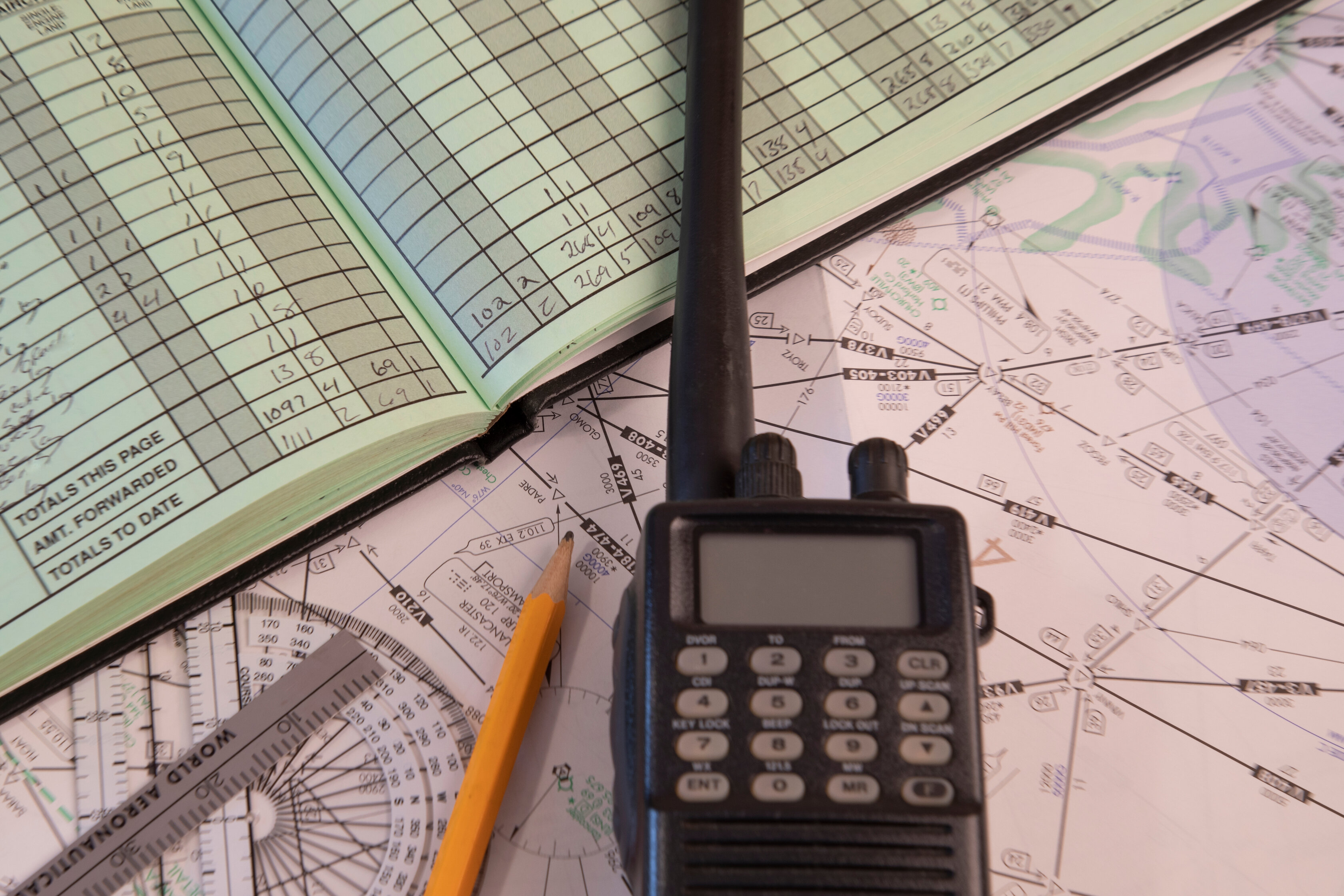


The French media's questions during an 'informal' press conference held virtually by the External Affairs Minister yesterday served as a useful barometer of the issues that have particularly angered their politicians, regional representatives and fishermen.
Their questions focused around Jersey’s reaction to threats of reprisals, how licences will be passed from one generation of fisher to another, and why data sent by French fishermen giving evidence of past activity has not reached the island.
One question also sought to understand whether the UK and Jersey issued licensed differently, suggesting that more work needs to be done, perhaps, on setting out what was agreed in the UK-EU trade agreement.
Here, Express shares the French questions, and the answers given by Senator Ian Gorst…
Q: What is your appraisal of the situation today and do you think that the ball is now in your court or not?
“We have very clearly issued the intention to provide licences to those vessels who have provided data to us.
“We have even gone on further than that and provided a separate category of vessel where we have a good amount of information but not yet complete information and we have offered until the end of January to receive that information.
“We [then] have the third category, where we have received either no information and data, or very little, and as we sit here we would not be able to issue those vessels a licence because to do so would breach the trade agreement.
“But we have given 30 days’ notice of that intention but we cannot issue licences if we do not have the evidence and information that they don’t comply with the terms of the trade deal.

Pictured: A recent demonstration by French officials and fishers on the beach at Armanville, near Pirou, where one of the Jersey-France electricity cables leaves the continent.
“But rather than sit here and wait for that information, my position has been very clear: we are working with Brussels through the evidence base and the methodology. We want to work with Paris on the same open transparent basis, together with our regional colleagues.
“Because what has become apparent since we made our announcement last week, that there are individual fishers who believe they have sent more information through the official channel than we have received.
“Therefore, whether there is a blockage in Paris, Brussels or Westminster we still stand ready to receive that data, because every vessel that complies with the requirement within the trade agreement, we want to give a licence to.
“So rather than becoming entrenched, we wish to continue to work and talk to look at the data.”
La Presse de la Manche (Cherbourg-based newspaper)
Q: The French Government has talked about cutting off Jersey’s electricity supply. There is also talk of sending back Channel Island students who study in France. Are these concerns for you?
“Let me clear, we are abiding by the terms of the trade deal and we call upon all parties to that agreement to abide by the trade deal as well.
“The disproportionate threats that we have heard, for example, to cut off Jersey’s electricity - that would be cutting off an energy supply to 108,000 islanders, to our hospital and to our schools. That would be in breach of the trade agreement and would be entirely disproportionate and is inappropriate.
“Let’s deal with the issue, which is the evidence that fishers can provide to receive their licence.”
Senator Gorst later added that the contingencies were in place, should France go ahead with its threat to cut the island’s electricity.
Q: There are very small vessels which have been fishing in Jersey’s waters. They are not in a position, technically, to provide the necessary data, and are therefore not able to qualify. What is your response to that situation?
“French vessels that previously fished in Jersey’s water under the Bay of Granville Agreement had to complete logbook data. We have been absolutely clear that we will look at the full range of data available in order to prove that historic track record.
“We don’t accept that it is impossible for fishers to comply because they will have been completing logbook data, even though that doesn’t involve the latest technology.
“If that data has not been supplied and given to us, we call upon those individual fishers to provide that data so if they are entitled to a licence, they can receive one.
Q: It appears that some data [from fishers] has not reached you. Why and where has that happened?
“It is not possible for me to say why or where. It has become apparent that it has happened and that is why my message is very clear: let us deal with providing the data, making sure that we have the evidence to be able to comply with the trade deal and let’s do that together. And that is Jersey, Brussels and France.
Q: This is a question about the transferability of licences. If, for example, you have a life arrangement, where a fisherman would like to pass on a licence to a younger fisher, what do you say to concerns that this may not be able to happen: that it could be an obstacle to younger fishermen entering the profession?
“The trade deal envisages that vessels that show historic fishing rights will receive licences. It also envisages that those licences under certain circumstances could be transferred from one vessel to a replacement vessel but it doesn’t envisage an improvement on nature and extent.

Pictured: A fleet of French boats protested off St. Helier in May but there has been no talk, yet, of similar action.
“The Environment Minister has already given a commitment to regional colleagues that he will deal with those matters on a case-by-case basis.
Q: Once issued, will the licences be permanent?
“The trade agreement envisages that once a vessel has complied with the requirements in the trade agreement they will be able to have a permanent licence, even though it will be issued on an annual basis in exactly the same way as permanent licences were issued under the Bay of Granville Agreement.
Q: Is there a distinction between licences granted by the UK and licences issued in Jersey? After all, fishermen don’t just fish in Jersey waters; they may fish in different waters.
“They are different and they are dealt with differently in the trade agreement. There is a clause that deals with EU vessels that wish to have a licence in UK waters and there is a separate clause for vessels that wish to have a licence in Jersey waters.”
Express also asked a question...
Q: Do you think that the two-stage process you are taking by separating ‘numbers’ from ‘nature and extent’ will lead to problems in the future when you start to apply conditions to licences already issued?
“The process is now two-stage at the request of the European Union and we are having productive conversations between ourselves, the EU, and France about the ’nature and extent’ which would ultimately lead to conditions in due course over ‘days at sea’ and ‘gear’.
“I hope that with the agreement of the EU those agreements and conditions will be accepted by all fishers fishing in Jersey waters, but we recognise that both the licence numbers and the interpretation of nature and extent are important to all fishers.
“Though they are also important for sustainable fishing in our waters [and] that means long-term livelihoods for both French and Jersey fishers.”
Another question focused on whether the France action could be attributable to French elections being held next year.

Pictured: Jersey says it is accepting logbook data from fishermen with small boats who don’t have a tracking beacon, as evidence as past activity.
Senator Gorst replied: “Jersey has no desire to enter into rhetoric or breach the trade agreement in any respect. We have done everything we can to enable licences to be issued to those vessels who can prove they have fished in our waters, and we have continued to do so.
“So, wherever threats or disproportionate announcements are made, we remind ourselves that we are acting within the terms of the trade deal and we call upon all parties of that trade deal to continue to act within its terms as well and not breach it, whether that is unilateral action or threats about energy, unilateral action about closing ports or unilateral action about tariffs.
“There is no doubt that if there are less threats, less rhetoric and more sitting around the table to do with the issues that are required to be dealt with - providing evidence and giving licences - we can seek to resolve the current difficulties.
“All parties to the trade agreement should seek to live by the trade agreement and act in accordance with the trade agreement. That is what Jersey is doing.”
WATCH: Energy threat returns as France promises pressure in "days"
Marine conservationists call for return of fishing licence conditions
EXPLAINED: Unpicking a local issue on the international stage
Jersey awaits French reaction after fishing licence decision
Jersey won't 'break Brexit' to resolve fishing row
“Frank” discussions calm French fishing anger as key decision looms
FOCUS: A timely summit aiming to claw back friendship
FOCUS: French make 'power play' as fishing anger flares again
BLOW-BY-BLOW: How the fishing crisis unfolded... (live updates) (May 2021)
WATCH: French and British patrol boats watch over as French boats blockade harbour (May 2021)
Comments
Comments on this story express the views of the commentator only, not Bailiwick Publishing. We are unable to guarantee the accuracy of any of those comments.